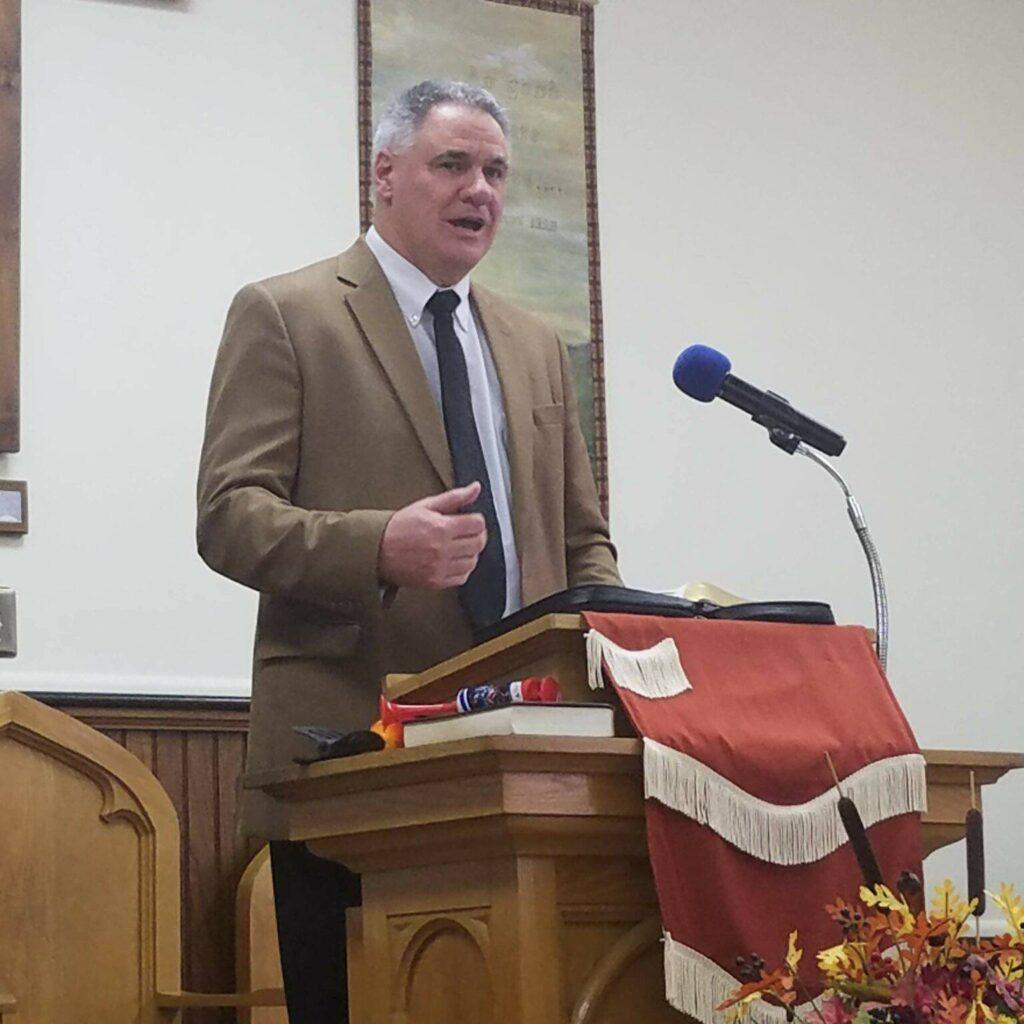Dietrich Bonhoeffer’s book, The Cost of Discipleship, remains a thoughtful and challenging text that invites readers to explore the demands of true Christian commitment. The work encourages its audience to consider what genuine discipleship entails. Rather than settling for a superficial or convenient faith, Bonhoeffer calls for a deeper, more authentic and sometimes difficult adventure of following Christ. In this article, I’ll walk through several aspects of the book, breaking down its core ideas and explaining how they continue to resonate today. This challenging adventure is not merely an academic exercise but a call to re-evaluate everyday life and to re-order priorities in the light of true commitment.

Introduction to The Cost of Discipleship
This book was written in a time of great upheaval. Bonhoeffer, a theologian deeply affected by the challenges of his era, wrote about what it means to truly follow Jesus. He critiques the notion of ‘cheap grace’ – a term he uses to describe a grace that is offered without any real sacrifice. Instead, he advocates for a concept of grace that comes at a price, urging believers to commit wholeheartedly. His insistence on what many consider a burdensome but honest commitment has made the book not only a theological work but also a personal call to live with integrity and purpose.
The Cost of Discipleship offers readers an invitation to rethink the everyday practice of faith. It challenges the modern tendency to seek comfort and convenience, urging a return to the core demands of Jesus’ teachings. Bonhoeffer asks us to weigh the true cost of following a demanding calling. He presents a perspective that is both sobering and motivational, and his insights call upon followers to look beyond surface-level assurances. This exploration helps believers understand that true discipleship requires a daily, thoughtful decision to live in accordance with higher values.
In addition to its theological insights, the book provides historical and personal context that adds depth to its message. Bonhoeffer’s reflections on the nature of commitment and sacrifice invite readers to consider how modern life might be enriched by embracing a more challenging path. His careful analysis of grace resonates in today’s fast-paced world where shortcuts and easy answers often win out over deeper reflection.
Core Themes Explored in the Book
At the heart of Bonhoeffer’s work lie several key themes that question the very nature of grace and commitment. One central idea is the contrast between cheap grace and costly grace. Cheap grace, according to Bonhoeffer, is a grace that comes without the burden of responsibility or the need for transformation. In opposition, costly grace demands self-discipline, personal sacrifice, and a willingness to stand by one’s convictions even in the face of adversity. This form of grace insists that forgiveness and redemption should lead to a meaningful change in behavior.
Bonhoeffer masterfully breaks down what it means to live life in a way that mirrors the sacrifices of Christ. He reminds readers that faith is not simply a set of beliefs to be held; it is a transformative process affecting every aspect of daily existence. His critique of superficial Christianity encourages believers to examine whether their practices truly embody the essence of a committed life. By challenging modern assumptions, he compels us to consider whether our actions are aligned with a responsible and ethical faith.
Furthermore, Bonhoeffer’s discourse on the idea of sacrifice invites readers to rethink the meaning of commitment. His words suggest that every act of true discipleship must be accompanied by personal cost. He challenges us to break away from the temptation of a convenient spirituality and to accept the rigorous demands of a life devoted to higher ideals. These reflections are especially resonant in times when comfort and ease are highly valued, prompting a critical look at the price we are willing to pay for authentic faith.
Understanding Discipleship in Bonhoeffer’s Writings
The book invites a reflective examination of what discipleship means. Rather than accepting faith as something comfortable and static, Bonhoeffer insists that true discipleship is dynamic and requires continual effort. This does not imply a rejection of grace; it means that grace itself carries the power to transform when embraced with responsibility. Bonhoeffer makes a strong argument that individuals must actively choose to live out their beliefs, even if it means encountering hardships along the way.
Bonhoeffer argues that genuine discipleship involves a willingness to suffer and to make difficult choices. For him, freedom in Christ is achieved by accepting the inherent costs of commitment. The call to follow Jesus is presented as an active decision, a daily act where small decisions build into a grand mosaic of purpose and meaning. In examining discipleship in this light, the reader is encouraged to see each choice as a building block of a larger, more significant commitment.
This section also challenges the assumption that faith can be compartmentalized into convenient segments of life. Instead, every moment becomes an opportunity to live out one’s convictions, transforming ordinary actions into expressions of deep, ethical commitment. Bonhoeffer’s insights demand that in every challenge, there is a chance to reaffirm one’s devotion in ways that turn simple actions into a continuous adventure of faith.
Historical and Theological Context
The Cost of Discipleship was written against the backdrop of a turbulent historical period. The 1930s and 1940s were marred by widespread conflict, social unrest, and moral uncertainty. Bonhoeffer himself was part of a community that actively resisted oppressive regimes, which makes the ideas in this book even more striking. At a time when traditional models of institutional faith appeared inadequate in addressing pressing ethical issues, Bonhoeffer’s call for a personal and engaged faith life became a radical assertion of individuality and courage.
This historical context is fundamental to understanding the urgency and passion of his message. The book serves as a reminder that faith does not exist in isolation; it must interact with the real challenges and injustices of the world. By placing personal belief within the larger framework of societal conflict, Bonhoeffer provides a template for respectful rebellion against systems that devalue human dignity. His reflections continue to influence those who question established norms and conventions in the pursuit of a truly ethical life.
Moreover, the historical and theological context of Bonhoeffer’s writings adds an extra layer of depth to his arguments. His firsthand experience of a world in turmoil provides his reflections with an authenticity that modern readers find both inspiring and instructive. This blend of personal experience and theological insight makes The Cost of Discipleship a work that challenges both the heart and the mind, urging a thoughtful re-examination of deeply held beliefs.
Getting into Key Concepts
The book presents several powerful ideas that challenge many modern assumptions about faith. One such concept centers on the notion of cheap grace. Bonhoeffer criticizes the allure of a grace that absolves without demanding accountability. He warns that when grace is dispensed without any strings attached, it inevitably undermines the profound sacrifice that Jesus made. In contrast, costly grace is presented as a grace that calls for tangible change, insisting on action, personal sacrifice, and the courage to act in accordance with one’s beliefs.
Below are a few key ideas from the text that continue to spark debate and inspire reflection:
- Costly Grace: This form of grace offers forgiveness and the promise of renewal only when it is accompanied by a real willingness to act, reflecting the true spirit of following Christ with every fiber of one’s being.
- Obedience: Real faith is not measured solely by what one believes but by how one acts. True obedience transforms private belief into actions that uplift and benefit the wider community.
- Suffering and Transformation: Bonhoeffer does not shy away from the concept that real discipleship may involve hardship. He views suffering as something that builds character and deepens faith, ultimately contributing to personal growth and societal betterment.
These ideas collectively challenge the notion that faith can be easily maintained without sacrifice. Bonhoeffer pushes for a perspective where each act of commitment, however small, contributes to a much larger tapestry of ethical and spiritual responsibility. His arguments encourage readers to reflect on the real implications of their daily actions and to consider whether they are prepared to take up that challenge fully.
Getting to Know the Main Ideas
The narrative of The Cost of Discipleship is not a mere catalogue of abstract concepts; it is a call to practical action. Bonhoeffer’s ideas require thorough introspection and a reordering of personal priorities. One of the most striking facets of his narrative is the call to model one’s life on the challenging examples set by early pioneers of the faith. This is not an easy path. Bonhoeffer makes it clear that while the road may be steep and fraught with difficulties, it is also rich with purpose and meaning. Taking the path of costly grace means aligning oneself with principles of justice, truth, and moral fortitude.
His writing is deliberate and thoughtful, urging individuals not only to hold their beliefs dearly but also to live them out in a way that contributes positively to the community. By embracing the full cost of discipleship, readers are invited to see their personal sacrifices as steps toward a healthier, more accountable society. This approach helps build a ripple effect where individual commitment raises the standard of communal life, ultimately making a lasting positive impact on society.
The book also encourages a deeper look into the nature of commitment. It suggests that every ethical decision, whether grand or seemingly insignificant, plays a role in the broader narrative of faith. Bonhoeffer’s perspective turns everyday actions into opportunities for meaningful spiritual growth—a concept that remains very important in today’s society.
Critiques and Ongoing Relevance
Like any work that challenges conventional wisdom, The Cost of Discipleship has faced its share of critiques. Some readers argue that Bonhoeffer’s demands are excessively rigorous for modern life, where the balance between individuality and collective responsibility is often contested. In a society that prizes personal freedom and convenience, his call for uncompromising commitment can seem extreme.
Nevertheless, the enduring relevance of the book lies in its honest exploration of faith amid real-world challenges. Bonhoeffer’s call to resist superficial interpretations of grace has inspired theologians, social activists, and many modern believers. His insights serve as a powerful reminder that true commitment to one’s values often involves personal sacrifice and a willingness to stand apart from what is easy or popular. These ideas resonate deeply, especially when modern lifestyles lean towards convenience at the expense of genuine personal connection and accountability.
Critics have also questioned whether such a strict interpretation of discipleship can be applied in today’s diverse and dynamic social landscape. Yet, for many, the very nature of these challenges reinforces the necessity of adopting a clear-eyed view of what true discipleship means. The debates continue, as scholars and believers alike wrestle with balancing personal piety and social responsibility, underscoring the book’s lasting impact on ethical discussions.
Advanced Reflections on the Book
For those who have already absorbed the basic ideas behind The Cost of Discipleship, further reflection on its more advanced themes offers an even richer understanding. Bonhoeffer’s observations stretch into areas that connect ethics and community, and that explore the tension between personal conscience and established authority. These discussions not only probe into abstract theological issues but also raise practical questions about modern faith practices and the role of religious institutions in society.
The debate surrounding the nature of grace – whether it should be understood as an unconditional pardon or as a transformative force – remains a lively subject of discussion among contemporary scholars. Many appreciate Bonhoeffer’s frank and unflinching approach to a faith that does not shy away from confronting moral ambiguities. His perspective encourages readers to view discipleship as a continuous process of re-examining and re-committing to one’s beliefs.
Advanced readers are invited to ponder the ethical implications of his arguments. Bonhoeffer’s writing pushes one to think deeply about the extent to which personal sacrifice is necessary, whether that means making difficult choices in private or taking a public stand against injustice. By urging his audience to accept the challenges that come with costly grace, he provides a blueprint for those willing to question the status quo and to act according to deeply held ethical convictions.
Frequently Asked Questions
Question: What does Bonhoeffer mean by the term “costly grace”?
Answer: Costly grace refers to a type of grace that does not come without a price. It demands personal commitment, self-discipline, and often involves sacrifice. Unlike cheap grace, which offers forgiveness without the burden of accountability, costly grace requires a transformative journey of faith.
Question: Why is the concept of cheap grace criticized in the book?
Answer: Cheap grace is criticized because it makes forgiveness and salvation too easy. Bonhoeffer contends that such an approach diminishes the significance of Jesus’ sacrifice. He believes that grace should lead to tangible change in a person’s life rather than allowing people to remain complacent.
Question: How does the historical context of Bonhoeffer’s life influence the book?
Answer: The turbulent times in which Bonhoeffer lived, marked by political and social unrest, played a significant role in shaping his thoughts. His experiences during the rise of oppressive regimes informed his fervent call for a discipleship that is actively engaged with the world and prepared to stand up to injustice.
Question: Can the ideas in The Cost of Discipleship be applied today?
Answer: Yes, many readers find that its reflections on sacrifice, moral commitment, and genuine community participation remain very important. In a society that often values convenience over conviction, Bonhoeffer’s work challenges modern believers to re-evaluate what true discipleship demands.
Wrapping Up
The Cost of Discipleship endures as a thought-provoking work that continues to influence theological debates and personal reflections on faith. Bonhoeffer’s challenge to embrace a form of grace that demands sacrifice pushes readers to consider the depth of their commitments. His call for active discipleship inspires a faith that is both vibrant and engaged with the complexities of modern life.
This work offers more than theological arguments. It provides a pathway for those willing to explore the cost of living a life that truly mirrors the teachings of Christ. Whether viewed as an inspirational call to take up higher responsibilities or as a rigorous critique of modern complacency, its message remains a potent reminder that genuine discipleship is never achieved without sacrifices.
For anyone looking to deepen their understanding of Christian commitment or for those wrestling with the balance between grace and sacrifice, The Cost of Discipleship provides a powerful narrative. It encourages readers to reframe what they owe to their faith and to the communities they belong to. By challenging convention and inspiring ethical reflection, Bonhoeffer’s work continues to be a vital resource in the ongoing discussion of what it means to truly live a life of purpose and dedication.
Ultimately, this book is a call for self-examination and renewed commitment. It reminds us that faith is an all-encompassing journey, filled with challenges and opportunities alike. As you reflect on its teachings, consider how each decision in your daily life can contribute to a tapestry of meaningful, costly grace. The insights offered here are a testament to the enduring nature of genuine spiritual discipline and the transformative power of a life lived in full commitment.








